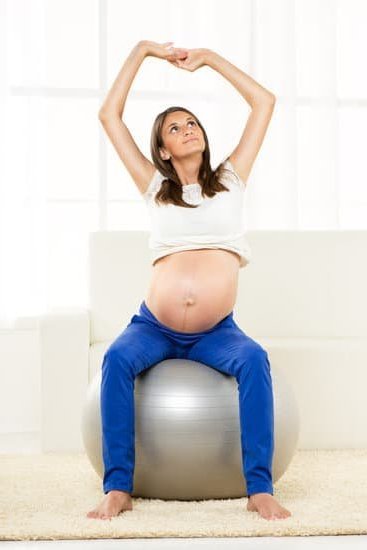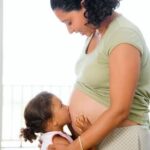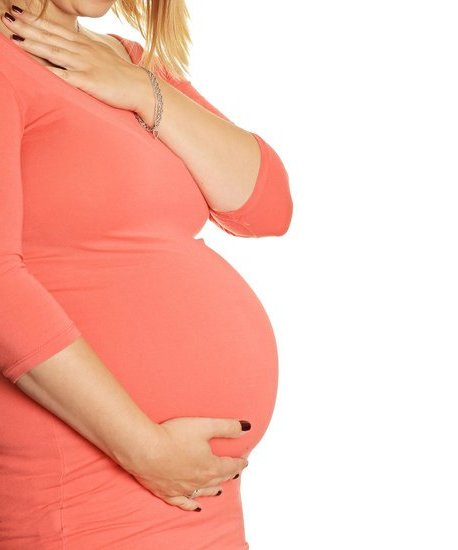How soon can you have pregnancy symptoms after conception? The anticipation and excitement of a possible pregnancy can lead many individuals to closely monitor their bodies for any signs of early pregnancy symptoms. Understanding the timing of when these symptoms may manifest is crucial for those trying to conceive or those who may suspect they are pregnant.
The journey to motherhood begins with a complex process involving the menstrual cycle, ovulation, and ultimately conception. It is essential to comprehend how these elements work together in order to recognize the early signs of pregnancy. By exploring the phases of the menstrual cycle and how ovulation leads to conception, individuals can gain insight into the timing of when pregnancy symptoms may begin.
Once fertilization occurs, early pregnancy symptoms can start to surface, varying from woman to woman. From fatigue and breast tenderness to nausea and heightened sense of smell, these signs can provide clues that a new life may be growing within. However, it is important to understand that every pregnancy is unique, and factors such as individual health conditions and lifestyle choices can affect when these symptoms might appear.
Understanding the Menstrual Cycle
The menstrual cycle plays a crucial role in the conception and development of pregnancy. Understanding the different phases of the menstrual cycle can help shed light on how soon pregnancy symptoms may appear. The average menstrual cycle lasts around 28 days, although it can vary from person to person.
Here is a breakdown of the typical phases of the menstrual cycle:
- Menstrual Phase: This phase marks the start of the cycle and involves the shedding of the uterine lining, leading to menstruation.
- Follicular Phase: Following menstruation, this phase involves the development of follicles in the ovaries in preparation for ovulation.
- Ovulation: Ovulation occurs around mid-cycle when an egg is released from one of the ovaries and is available for fertilization.
- Luteal Phase: After ovulation, this phase involves the release of hormones to prepare the uterus for a potential pregnancy.
Understanding these phases can provide insight into when conception may occur during ovulation and ultimately lead to early pregnancy symptoms.
Knowing how soon you can have pregnancy symptoms after conception is essential for many individuals trying to conceive or avoid pregnancy. Typically, early pregnancy symptoms can start as early as one week after conception. However, it varies from person to person, with some individuals experiencing symptoms sooner while others may not notice any signs until later on.
Common early pregnancy symptoms include:
- Missed period or changes in menstrual flow
- Morning sickness or nausea
- Increased fatigue or exhaustion
It’s important to keep in mind that other factors such as stress, lifestyle changes, or underlying health conditions could also cause similar symptoms. Therefore, if you suspect you may be pregnant and experience these symptoms, it’s crucial to take a pregnancy test to confirm your suspicions and consult with a healthcare professional for guidance on next steps.
Ovulation and Conception
During the menstrual cycle, ovulation plays a crucial role in pregnancy. Ovulation is the process where a mature egg is released from the ovary into the fallopian tube, where it can be fertilized by sperm.
This typically occurs around the middle of a woman’s cycle, approximately 14 days before the start of her next period. Understanding when ovulation takes place is important for couples trying to conceive as it marks the window of fertility during which conception is most likely to happen.
Here are some key points to consider regarding ovulation and conception:
- Ovulation usually occurs around day 14 of a 28-day menstrual cycle.
- The egg released during ovulation survives for only about 24 hours, so timing intercourse around this window is crucial for conception.
- Sperm can live inside a woman’s body for up to five days, so having intercourse in the days leading up to ovulation can also result in pregnancy.
Overall, understanding the timing of ovulation and how conception occurs is essential for individuals hoping to become pregnant. By tracking ovulation through methods such as monitoring basal body temperature or using ovulation predictor kits, couples can increase their chances of conceiving by timing intercourse appropriately. If considering pregnancy and wondering how soon you might experience symptoms, knowing when ovulation and conception occur can provide valuable insight into your fertility journey.
Remember that every person’s body is unique, so while some women may experience early pregnancy symptoms shortly after conception, others may not notice any changes until several weeks later. It’s essential to pay attention to your own body and seek guidance from healthcare professionals if you have concerns about pregnancy symptoms or fertility issues.
Early Pregnancy Symptoms
The early signs of pregnancy can vary from woman to woman, and some may experience symptoms sooner than others. One common early pregnancy symptom is a missed period, which often prompts women to consider the possibility of being pregnant. Other typical signs include fatigue, nausea or morning sickness, breast tenderness, frequent urination, and mood swings. These symptoms can start as early as one to two weeks after conception.
Another key indicator of pregnancy is implantation bleeding, which occurs when the fertilized egg attaches to the uterine lining. This light spotting can be mistaken for a light period but usually lasts for a shorter duration. Some women may also notice changes in their sense of smell or taste during the early stages of pregnancy. It is essential to remember that not all women will experience these symptoms or may have different variations in intensity.
Understanding these early signs and symptoms can help individuals recognize when to take a pregnancy test or consult a healthcare provider for confirmation. Home pregnancy tests are readily available and can provide accurate results as soon as a few days before a missed period. If you suspect you are pregnant based on your symptoms or other factors, it is best to confirm with a medical professional to ensure proper prenatal care and guidance throughout your pregnancy journey.
| Early Pregnancy Symptoms | Common Signs |
|---|---|
| Missed Period | One of the first indicators prompting consideration of pregnancy |
| Nausea/Morning Sickness | Frequent bouts of nausea typically experienced in the morning |
| Implantation Bleeding | Light spotting due to fertilized egg attaching to uterine lining |
When Do Pregnancy Symptoms Start
Early Signs and Symptoms of Pregnancy
Pregnancy symptoms can vary from woman to woman, but there are some common signs that may indicate pregnancy in the early stages. These can include fatigue, breast tenderness, nausea or morning sickness, frequent urination, and mood swings. Some women may also experience implantation bleeding, which occurs when the fertilized egg attaches to the uterine lining.
Timeline for Pregnancy Symptoms
Typically, pregnancy symptoms can start as early as one to two weeks after conception. However, for most women, these symptoms become more pronounced around four to six weeks into pregnancy. This is usually around the time a missed period would occur, leading many women to suspect they might be pregnant.
Factors Influencing Symptom Onset
Several factors can influence when pregnancy symptoms start appearing. Hormonal variations among women can play a significant role in how soon these signs manifest. Additionally, the sensitivity of an individual’s body to hormonal changes can impact the onset of symptoms. Stress levels, overall health, and lifestyle habits like diet and exercise can also influence when pregnancy symptoms become noticeable.
By understanding the typical timeline for when pregnancy symptoms start and considering various factors that may influence their onset, individuals looking to conceive or concerned about a potential pregnancy can have a better grasp of what to expect in the early stages of gestation. If any unusual or severe symptoms are experienced, it is always advisable to seek guidance from a healthcare professional for proper evaluation and care.
Factors Affecting Symptom Onset
Hormonal Variations
One of the key factors that can influence when pregnancy symptoms may appear is individual hormonal variations. Every woman’s body is unique, and the levels of hormones like estrogen and progesterone can fluctuate differently from one person to another. These hormonal changes are crucial in early pregnancy, as they prepare the body for sustaining a pregnancy. Some women may experience symptoms as soon as implantation occurs, while others may not notice any significant changes until later on.
Overall Health and Lifestyle
A woman’s overall health and lifestyle choices can also play a role in when pregnancy symptoms start to manifest. Factors such as diet, exercise, stress levels, and pre-existing health conditions can impact how soon a woman may notice signs of pregnancy. For example, women who lead a healthy lifestyle with balanced nutrition and regular exercise may be more attuned to subtle changes in their bodies than those with less healthy habits.
Sensitivity to Physical Changes
Another variable that affects when pregnancy symptoms might become noticeable is an individual’s sensitivity to physical changes. Some women are naturally more in tune with their bodies and may pick up on subtle signs of pregnancy sooner than others. On the other hand, some women may be less aware of these changes or attribute them to other factors, delaying the recognition of early pregnancy symptoms.
By considering these various factors that can influence when pregnancy symptoms appear, individuals can gain a better understanding of their own bodies and potentially recognize signs of pregnancy earlier. It is important to remember that every woman’s experience with early pregnancy symptoms can vary, so it is essential to pay attention to your body’s signals and consult with a healthcare professional if you have any concerns about potential pregnancy.
False Pregnancy Symptoms
When it comes to pregnancy, there are many misconceptions and false alarms that can lead individuals to believe they are experiencing symptoms when, in fact, they may not be pregnant. It is essential to distinguish between true early pregnancy symptoms and other conditions that can mimic them. Some common false pregnancy symptoms include changes in appetite, mood swings, bloating, and even a missed period. These signs alone may not necessarily indicate pregnancy and could be attributed to other factors.
One of the most significant misconceptions is the belief that a missed period is a sure sign of pregnancy. While a missed period is a classic indicator, it can also be caused by stress, hormonal imbalances, extreme weight fluctuations, or underlying medical conditions.
It is crucial not to jump to conclusions based solely on this symptom but to consider other signs as well. Additionally, many women experience irregular periods occasionally, making it harder to pinpoint the exact cause of a missed cycle.
Another false symptom that often leads to confusion is spotting or light bleeding. Some women mistake implantation bleeding for a light period and assume they are pregnant when it may not be the case at all. Implantation bleeding can occur around the time of expected menstruation but is generally lighter in flow and duration than a typical period. It is essential always to consider all possible causes before assuming pregnancy based on this symptom alone.
It is vital for individuals who suspect they may be pregnant or are experiencing any unusual symptoms to consult with a healthcare provider for proper evaluation and guidance. A healthcare professional can conduct tests to confirm pregnancy accurately and rule out other potential health issues that may be causing similar symptoms. Remember always to seek medical advice rather than relying solely on self-diagnosis or internet searches for accurate information regarding pregnancy concerns.
| Common False Pregnancy Symptoms | Explanation |
|---|---|
| Missed Period | A classic indicator but can also be caused by other factors such as stress or hormonal imbalances. |
| Spotting or Light Bleeding | Often mistaken for implantation bleeding which can lead individuals to believe they are pregnant. |
| Changes in Appetite or Mood Swings | These symptoms can be attributed to various factors other than pregnancy. |
Seeking Guidance
In conclusion, the question of “How Soon Can You Have Pregnancy Symptoms” is a common inquiry among women who are trying to conceive or suspect they may be pregnant. Understanding the menstrual cycle, ovulation, and conception plays a crucial role in recognizing potential early signs of pregnancy. Early pregnancy symptoms such as fatigue, nausea, breast tenderness, and missed periods can be indicative of pregnancy, but it’s essential to know when these symptoms typically start manifesting.
The timeline for when pregnancy symptoms start can vary from woman to woman and even from one pregnancy to another. Factors like individual hormone levels, stress levels, overall health, and genetics can influence how soon or late pregnancy symptoms appear. Additionally, false pregnancy symptoms can often mimic genuine signs of pregnancy, causing confusion for women navigating this journey.
For accurate confirmation of pregnancy, it is important to know when to take a home pregnancy test for reliable results. Typically, it is recommended to wait at least one week after a missed period before taking a test to allow enough time for the hormone hCG to build up in your system.
If uncertain or experiencing unusual symptoms, consulting with a healthcare professional is advisable to receive proper guidance and support throughout this process. Remember that every woman’s body is unique, so trust your instincts and seek help if needed for peace of mind.
Frequently Asked Questions
How Can I Tell if Im Pregnant After 1 Week?
It is usually too early to definitively determine pregnancy after just one week. Most at-home pregnancy tests recommend waiting until your first missed period for accurate results, which is typically around 2 weeks after conception.
How Early Do Pregnancy Signs Start?
Pregnancy signs can begin as early as one week after conception, but they are usually more noticeable after a few weeks. Early symptoms may include fatigue, nausea, breast tenderness, and frequent urination. However, every woman’s experience is unique.
Can I Feel Pregnancy Symptoms After 2 Days?
Feeling pregnancy symptoms just two days after conception is highly unlikely due to the fact that it takes time for the fertilized egg to implant in the uterus and for hormones to build up in your body. Symptoms typically start appearing a bit later in the pregnancy process.

Welcome to my fertility blog. This is a space where I will be sharing my experiences as I navigate through the world of fertility treatments, as well as provide information and resources about fertility and pregnancy.





